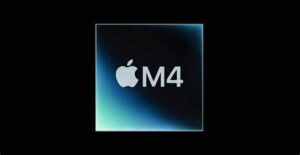Google Maps or Google +?
- Google has at last decided to have a proper attempt at gaming but its record outside of its core competencies is not exemplary, begging the question whether this will be a Google Maps or just another Google +?
- Google’s Stadia offering is yet another entry into an increasingly crowded gaming market that for years has remained relatively un-addressed outside of PCs and consoles.
- In developed markets, gaming on mobile devices has been a highly fragmented affair with no unifying multiplayer platform bringing gamers together and creating a community.
- It is the creation of this community that represents an incremental monetisation opportunity above and beyond the selling and renting of games.
- Google is the latest entrant, following on from Fortnite (see here) and Microsoft (see here) who are all taking a slightly different tack when it comes to gaming on mobile devices.
- Google’s Stadia will be a streaming service where the game computations are carried out in the cloud and then relayed to the terminal be it a PC, handset or anything else.
- Google is very late to this party and as a result, will find itself behind in a number of areas.
- First, titles: Google has demoed streaming games such as Assassin’s Creed and Doom but just how many developers will make their games available is very unclear.
- This is because some porting is required to get the games to run on Google’s gaming server and without millions of players, the economic return on that investment is unclear.
- Hence, Stadia may find itself light in the library despite claiming superior performance offered in the cloud compared to the current leading consoles.
- Second, players: Google’s key competitors in this space, Fortnite, Microsoft, Sony and Steam already have millions of players and a good set of titles available.
- Somehow, Google will need to convince these players to leave their current places of play and to migrate to Google.
- This is especially the case as this will almost certainly will be a paid for service creating a significant barrier to switching.
- Third, iOS: is an important platform for gaming as this is where the highest value gamers are to be found and Google Stadia’s position here is uncertain.
- At the launch there was no mention of iOS availability and no demo on iOS was given.
- This is odd as Google claimed that it would work on anything with the Chrome browser and an internet connection both of which iOS already has.
- This strongly implies that Google has not yet managed to square the circle with Apple and that running on mobile is a little more involved than installing Chrome.
- There is, without a shadow of a doubt, a big opportunity in mobile gaming.
- This is because gaming is a big segment of Digital Life and so far, there is no company with a dominant position like the one Tencent enjoys in China.
- Hence, there is a significant monetisation opportunity in this space up for grabs.
- However, the question is whether Stadia is well suited to this as it is initially targeting console quality games which are not well suited to the much shorter intermittent gaming patterns experienced on mobile.
- This is why casual games dominate mobile and to properly address this space, Stadia will need to be expanded to casual as well as console.
- Real traction will be needed to get Stadia off the ground and no amount of grandstanding will make up for any failure.










Blog Comments
Tsahi Levent-Levi
March 21, 2019 at 2:24 pm
Richard,
I tend to agree with your assessment and challenges.
One minor technical correction though – Chrome on iOS is like lipstick on a pig (for lack of a better term). Since no browser vendor is allowed to run his own rendering engine on iOS, all browsers on iOS are simply Safari/WebKit with a UI skin on top – Chrome included.
This means that Chrome on iOS isn’t really Chrome, and that the means by which Google gets their low latency for this service (WebRTC+QUIC) is still missing in its functionality on Safari/WebKit in iOS.
RICHARD WINDSOR
March 21, 2019 at 3:02 pm
Aha now it makes sense… many thanks for that…. this will explain why it wont work well Chrome on iOS. cheers